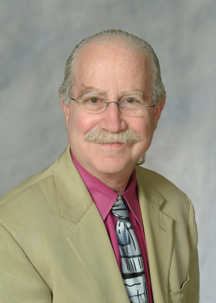By Kate Helm

Dr. David Goldstein '68
“The business of medicine has moved us away from the practice of medicine, and we need to recapture that,” says Dr. David Goldstein ’68, chief of the Division of Geriatric, Hospital, and General Internal Medicine, University of Southern California’s Keck School of Medicine, Los Angeles.
“Most medical students want to know hard data because they can get their arms around it very easily. But patients come to us in their most vulnerable condition when they’re sick,” he explains. “What we need now are physicians who can reflect on the patient’s experience and go into medicine because they’re interested in being a healer. We look for students who demonstrate a respect and appreciation for the humanities and how that plays a role in our lives, as well as how we can use humanities to deal with incredibly demanding moral dilemmas.”
Goldstein, who divides his time equally among administration, teaching, and seeing patients, relishes his role as a physician-teacher. “I have an ideal job. I’m helping someone almost every day, whether it be a patient, colleague, or student.”
USC offered the perfect setting for Goldstein to realize his goals. “This university marries care of the insured with that of the underprivileged on one campus. It is the ideal setting to teach, push the envelope in research, and see patients.” He notes that USC is one of the few medical schools where students interact with patients in their first week whereas at most medical schools it is postponed until the end of the second year. “This patient-doctor relationship is powerful and significant in the lives of patients and their families.”
His own success as a practicing physician doesn’t compare to the feeling he gets when he sees one of his young physician trainees understand their role in providing comfort and treatment during the patient’s most vulnerable times. “The ability to ignite a flame in a student is the best thing,” he says.
Goldstein, a chemistry graduate, first grasped the value of good mentorship when he conducted research with Joseph Sherma, Larkin Professor Emeritus of Chemistry. At graduation, Sherma presented his student with reprints of their publication together, the first Goldstein ever had.
“I had never done science before,” he says. “This was his career, and I look back on how open he was about letting me into his world. That was so helpful to my life, and I don’t think I ever told him how much that meant. He had such a great effect on me, enabling me to mentor so many medical students today.”
Goldstein recognized his calling to help others at a young age. From age 13 through high school, he worked weekends and holidays as the only male candy striper at the hospital near his home.
“I have this calling,” explains Goldstein, a board-certified internist who earned his medical degree from State University of New York-Downstate Medical School.
A resident of of Northridge, Calif., Goldstein is associate professor of medicine and the Department of Medicine’s vice chair for clinical affairs. He also co-founded and now serves as a co-director of USC’s Pacific Center for Health Policy and Ethics.
Goldstein’s latest project is Galaxy Health Care, an innovative model of patient-center primary care at Los Angeles County+USC Medical Center. Through the network, physician trainees provide patients with 24/7 access to health information. Galaxy Health Care is designed to upgrade the care of safety net hospitals, which serve underprivileged and underserved individuals. The concept is already an enormous success, and Goldstein expects to roll it out to other Los Angeles hospitals over the next few years.

1 Comment
Comments are closed.